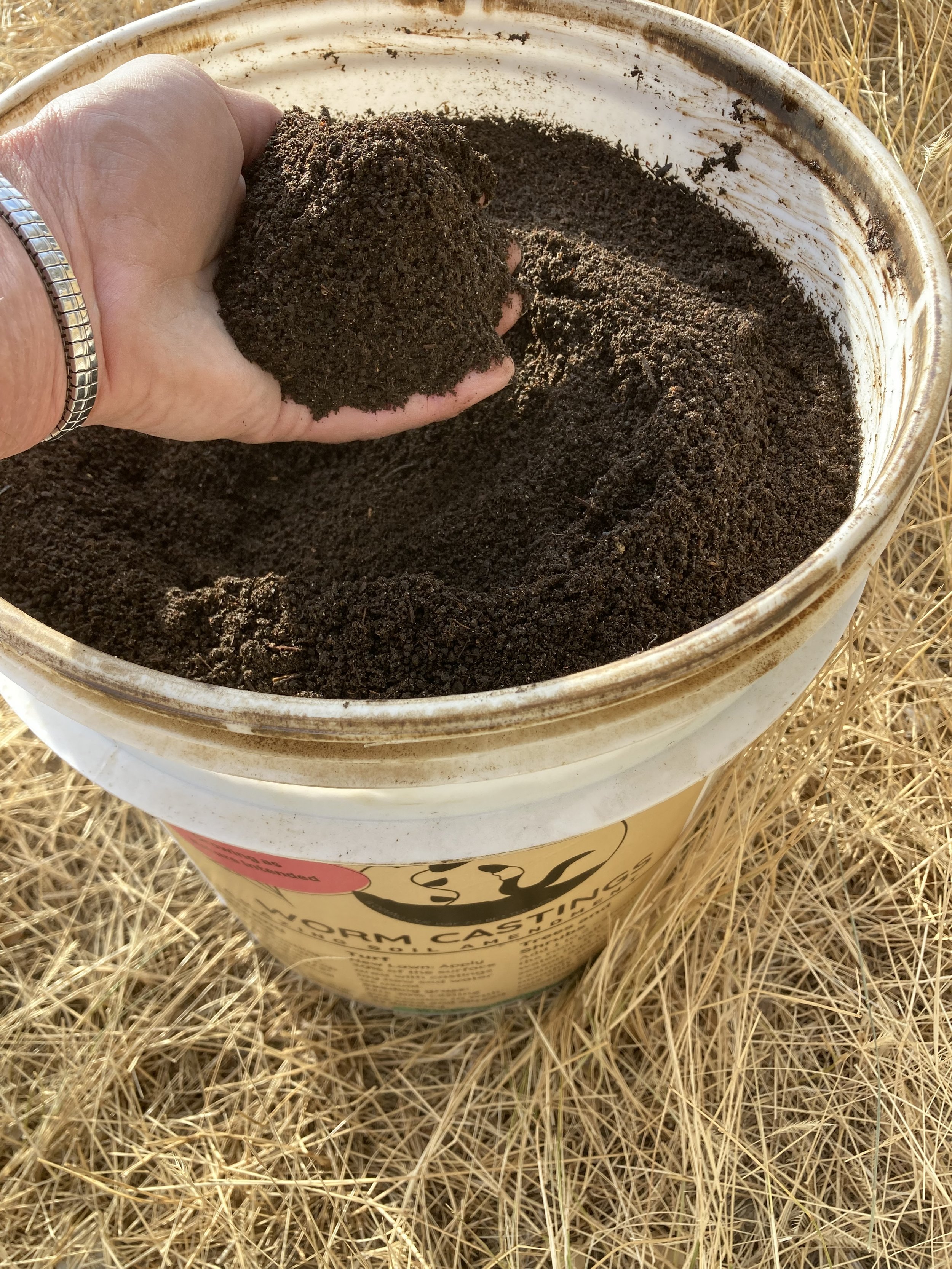Worm Farm Visit
Have no fear, inspirational people are asking questions that impact all of humanity, staying up late to resolve them, and testing their ideas on worms.
All without the slightest regard for convention or political correctness.
I was fortunate to meet such an inspiration in Medicine Hat, Alberta. Roxanne Doerksen uses worms and worm castings to reclaim oil and gas sites, improve range and cropland, and recycle everything from fruit to fabric.
She combined her PhD in microbiology, her Christian faith, a love for riding motorcycles and a rock-solid partnership with her farmer-husband to build a research facility that answers a myriad of questions about how worms and soil microbes transform soil chemistry.
My partner in crime for the day and I had to see how this all works.
I don't remember the last time I felt this inspired, excited and exhausted all at once.
We didn’t know we were criminals until later. That morning, we were only students.
We also didn’t know how deeply we were about to dive into underground microbiology.
As we visited with Roxanne, she focused her microscope and talked about chemical reactions and microbial predation hierarchies.
Periodically, we had to ask for clarification, but she patiently solved one mystery after another for me.
I’ve been trying to increase production on my alfalfa field for years.
I used to spray. That temporary fix only contributed to the chemical company’s bottom line, not mine.
Three years ago, I spread manure. I tried to be patient, giving the field time to react to the nutrients and added ability to hold water. I hoped the added nutrition would offset the drought that has held my ranch in its grip for three years and counting.
It didn’t.
Roxanne showed me how the microbes in my soil are hibernating, waiting for enough moisture to wake up and eat.
My alfalfa will grow better than ever if I have patience.
That’s a tall order, but I’ll try.
She showed us her worm bins and how she maintains optimum environmental conditions. We scooped our hands deep into an intricate, complicated realm that offers answers to so many questions if only we observe and connect the dots.
As we filled our fingernails with lovely soil and admired thriving worms, she talked about people who steal her research and present it at conferences as their own.
The incongruity of the scenarios was not lost on me.
Neither was the incongruity of the scene when we became suspected dirt smugglers, apparently the most dangerous kind.
Roxanne gave us two buckets of worm poop, collected from containers and tested under a microscope.
By the time we handed our passports to the border agent, the knowledgeable agricultural specialist had gone home to supper.
Only eight armed border patrol agents stood between two potential worm farmers and Armageddon.
A couple of the agents asked respectful questions, quickly researched worm poop and looked for ways to protect American agriculture from imported diseases while allowing evolving science to solve food production conundrums.
Yet a couple of them clearly understood the imminent threat to our entire way of life, making snarky comments and attempting to catch us in lies.
As we walked out, the snarky agents were confiscating bacon-jalapeno cheese. Those poor criminals were in big trouble, but Armageddon was averted once again.
As the distraught woman walked to the Canadian garbage can to dispose of her contraband, we placed our contraband vermicast in the same garbage can.
I went back the next day to retrieve it, crossing my fingers for intermittent garbage service.
When I walked in, a friendly agent hollered “the worm lady is here!”
Then the ag inspector wanted some worm poop for her garden, too.
